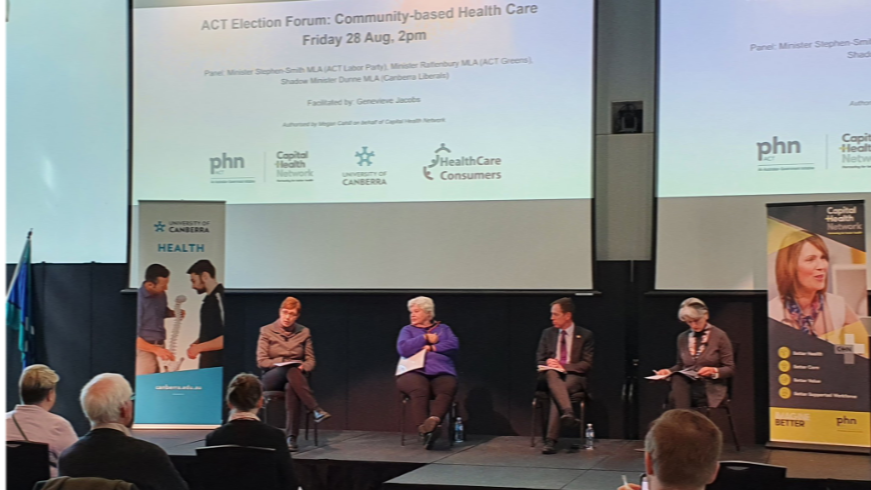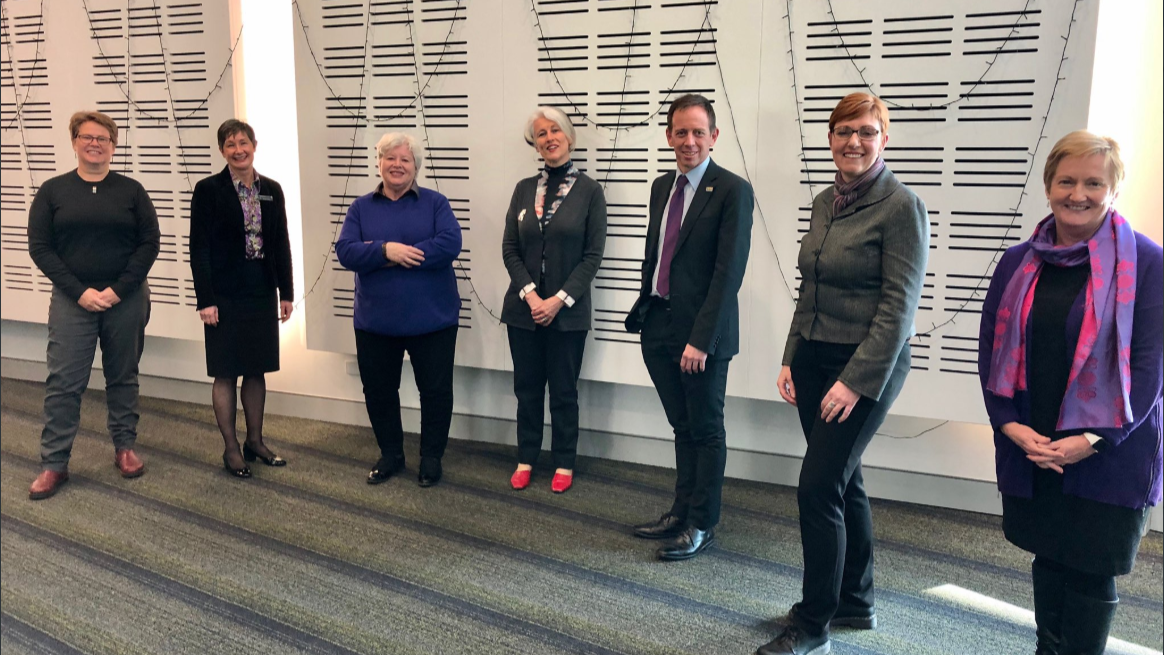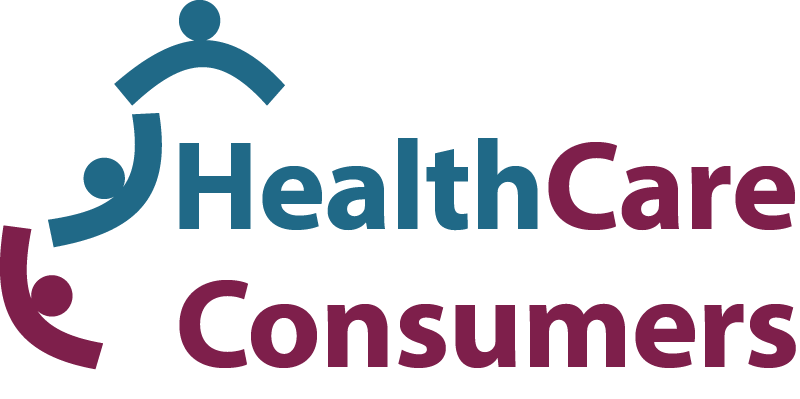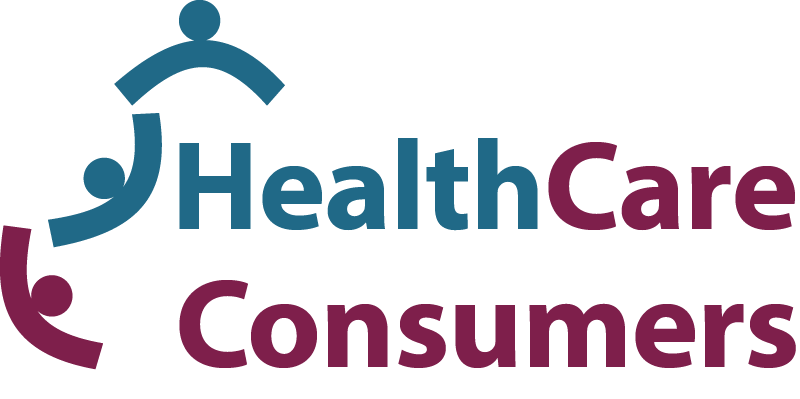Publications
ACT Election Forum – Community-based Health Care
4 September 2020
On 28 August 2020 HCCA co-hosted the ACT Election Forum on Community-based Health Care with the Capital Health Network and the University of Canberra. The panel consisted of representatives from the all the major parties with ACT Health Minister, Rachel Stephen-Smith MLA from ACT Labor, Leader of the Greens and the current Minister for Mental Health, Shane Rattenbury MLA and the Shadow Minister for Health, Vicki Dunne MLA from the Canberra Liberals in attendance. The forum was hosted both as a physical event at the University of Canberra and as a streamed event over zoom. There were 96 people who attended both in person and online, covering a wide range of interests from individual consumers through to representatives from service providers and other advocacy groups.
There was full panel agreement to:
- Getting the Ngunnawal Bush Healing farm working as originally intended including its residential component.
- Improving the situation for victims of domestic and family violence, ensuring we keep people safe through a whole-of-system approach. This could include things like providing sufficient resourcing and access to counselling, including trauma counselling for children, making restorative process available earlier to families as well as perpetrator supports to help them work on their issues in a supported environment away from the family.
- The development and implementation of a Disability Health Strategy to improve access to health services for people with disabilities.
When the floor opened to questions attendees raised a wide range of important health related questions, these prompted a variety of responses:
- There was a sense of the impact of COVID-19 on health services – realisation that things can be done more quickly or in a more responsive way than has happened in the past with an acknowledgement that there is a need to build on this kind of momentum.
- They highlighted the need to focus on preventive health/early intervention in primary care can help stop the blockages in acute care or on waiting lists in the more acute parts of the health care system.
- There was a recognition of the importance of carers and the significant role they play in our health system. They also need to be supported in their own health needs.
- It was acknowledged that there is a need to continue to partner with the community sector – especially in improving health literacy, providing the right services/integration and creating better models of care.
- It was acknowledged that consumers, carers and service providers require the right pathways to help ensure streamlined health care – and care delivered in the right place at the right time.
- There was an acknowledgement that palliative care services need to be responsive, available and meet consumer needs. There are a range of services needed, including sufficient hospice care at places like Clare Holland House, services in Canberra Health Services, and services to provide care at home is an area that needs more investment/development.
- There was also an acknowledgement that Covid-19 has been particularly difficult for people with disabilities and fear around having access to ICU and other critical care services if Canberra were harder hit by the pandemic.
During the forum, the individual representatives had a range of points that stood out and were worth noting. Vicki Dunne highlighted the lack of hydrotherapy and adequate rehabilitation services and impressed upon the audience the need for increasing and improving workforce numbers to match the needs of the community.
Shane Rattenbury highlighted the need to look at the broader social determinants of health such as housing security, the justice system, substance abuse and financial security to help improve the overall health and wellbeing of the Canberra community. He also highlighted the need to improve the overall systems to allow people to access the correct care in the places that work best for them, including digital and face-to-face provision options.
Rachel Stephen-Smith highlighted the importance of health care for children, especially in the first 1000 days, she acknowledgement of the gap in child and adolescent mental health services and the need to look at options that work at a family, community and at a 1:1 therapy level. She also highlighted the work currently underway to improve access to health care for people with disability at Canberra Health Services.
Overall, the event was a success allowing consumers, advocacy groups and service providers to ask a range of important questions in the lead up to the election.



